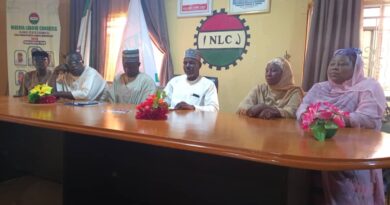CITAD, NIFG Calls for Gender-Sensitive Policies to Boost Women’s Digital Inclusion
By Mustapha Salisu
The 2024 Women Internet Governance Forum (WIGF), organized by the Centre for Information Technology and Development (CITAD) in collaboration with the Nigeria Internet Governance Forum (NIFG), has called for gender-sensitive digital policies to reduce Nigeria’s digital gender gap.
Held virtually on October 15, the forum gathered policymakers, advocates, and digital leaders to discuss barriers women face in the digital space and to push for increased inclusivity in Nigeria’s digital transformation.
In a communique issued to Prime Time News by Madam Mary Uduma, Chair, West Africa IGF, Comrade Ene Obi, immediate past Country Director, Action Aid Nigeria and Ali Sabo, Coordinator, WIGF, CITAD stressed this year’s WIGF focused on the theme “Promoting a Gender-Sensitive Internet: Women Inclusivity in the Digital Transformation,” emphasizing the need to prioritize women’s participation in the digital economy.
Leaders at the forum highlighted the importance of policies that specifically address the unique challenges women encounter, as existing policies often fail to consider gender-based barriers.
Speakers highlighted socio-economic and cultural obstacles that limit women’s digital access, including issues of affordability, lack of digital literacy, and limited educational opportunities.
These barriers disproportionately impact women in underserved and rural communities, hindering their ability to participate in digital and economic activities.
Keynote speaker Comrade Ene Obi, former Country Director of ActionAid Nigeria, stressed the urgency of addressing these barriers to create safer and more accessible online environments for women.
She noted that gender disparities online reflect broader systemic biases and called for reforms that empower women in the digital space, particularly in the areas of entrepreneurship and financial access.
The forum also raised concerns about the high prevalence of online harassment, which discourages many women from fully engaging in the digital economy or pursuing leadership roles in technology fields.
CITAD emphasized the need for stronger regulatory frameworks and collaboration between government, civil society, and technology companies to make digital spaces safer for women.
Participants pointed out that women’s underrepresentation in decision-making roles in technology and policy formulation further perpetuates gender imbalances.
They also urged public awareness campaigns to address cultural perceptions and advocated for creating gender-sensitive platforms that would encourage women’s safe and active participation in Nigeria’s digital economy.





